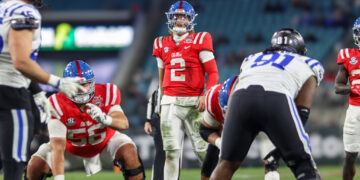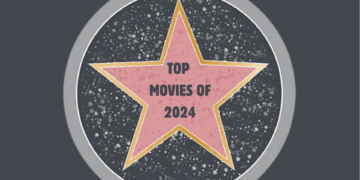
Alex O’Connor exists in a peculiar space. Better known as Rex Orange County, the 21-year-old from Surrey, England, is not a pop singer. He’s not a rapper either. He’s the amalgamation of bedroom pop cosplayers, Odd Future apologists and old souls.
He occupies a unique place in contemporary music: impossible to pigeonhole, but not unusual. He’s no Tyler, the Creator circa 2012 — which is ironic, because Tyler and his collective of genre-bending raconteurs are responsible for so much of O’Connor’s sound and notoriety.
His third album “Pony,” released Friday through Sony, is somehow just as juvenile as his first album, “bcos u will never b free.” That album is full of angry, sophomoric bedroom pop. It’s a requiem on past love, complete with lines like “pizza box / wedding ring left among the crust” and “don’t call me daddy / cause that’s just (expletive) weird.”
If nothing else, “Pony” represents a maturation of O’Connor’s sonic preferences. Whereas his first two albums consist of similar rhythmic patterns and instruments, “Pony” introduces professional production into O’Connor’s boyish sound.
Sony produced this album, and you can hear it. No two songs sound alike (take notes, Taylor Swift). He pays homage to new age hip-hop with playful ad-libs in “Face-to-Face,” uses synth piano in “10/10” and opts for an Ed Sheeran-esque pop beat in “It Gets Better.”
But the juvenile persists. In “Face to Face,” O’Connor sings, “She calmed me down that night I freaked out / We stayed up, I threw up in that house,” ostensibly recalling a night of being overserved.
In “Always,” O’Connor sounds like a brooding, omniscient kid. “But until somebody sits me down / And tells me why I’m different now / I’ll always be the way I always am,” he sings. The subtext here? O’Connor is a young adult dealing with the same issues that other 21-year-olds do.
In “Pony,” O’Connor shifted his focus from past loves to his current love, fellow singer/songwriter Thea. He doesn’t go so far as “ooh I love my wife,” as Chance the Rapper did in his summer album, “The Big Day,” but it’s no secret that this project is partly about her.
He sings, “Cause she changed the world I know / And it’s better for it / Four years later, and look where we really are / Look how far we’ve come,” in “It Gets Better.” In line with the song’s title, O’Connor’s lyrics do as well.
O’Connor doesn’t punch above his age. He is a college-aged musician, and the lyrics reflect it. “Pony” doesn’t tackle weighty subjects or attempt to normalize obscurity, like so many of his contemporaries. He raps and sings about young love, self doubt and losing friends — themes synonymous with the maturation of a teenager faced with international stardom before he could legally smoke a cigarette.
Pitchfork, the blog and self-described gatekeepers of online music opinions, lambasted this album for its lack of originality, characterizing it as “irritating enough to activate the mildest allergy to sincerity.” And while Pitchfork can legitimately be discounted as an ultra-contrarian, hipster potpourri, they got this one right.
O’Connor’s album does not revolutionize or push the boundaries of music. Its lyrics do not inspire sweeping social change, and they won’t usher in a new era of bedroom pop. He sounds like a Gen-Z Billy Joel.
But it doesn’t matter because the music is delightful. This album is breezy and pleasant; it’s shamelessly optimistic and retains the catchy hooks and beat flips that catapulted Rex Orange County into stardom. Each song compliments the other, though no two are alike.
O’Connor is an artist, and with “Pony,” he’s released a 10-track piece of art that speaks to the trials — however trivial — he has faced so far in his life. But it’s also a signal that Rex Orange County has time and space to grow. In “Pluto Projector,” as a Frank Ocean-like choir floats in the background, O’Connor asks: “Nothing’s changed / I’m still a boy inside my thoughts / Am I meant to understand my faults?”
His response? “I don’t think so.”



























